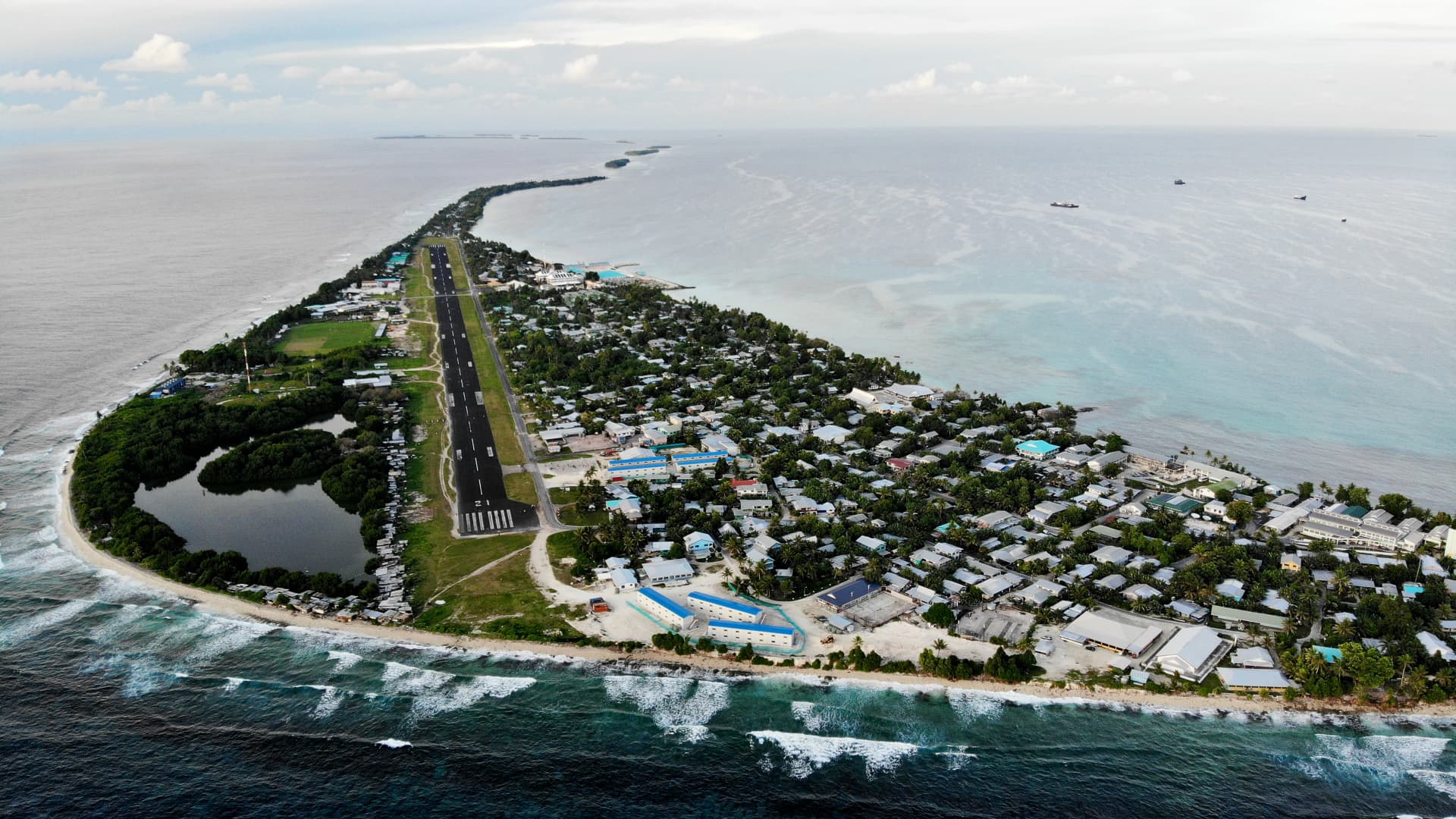
An aerial view of Funafuti, Tuvalu, from 2019. Tuvalu’s Department of Foreign Affairs describes climate change as “one of the most existential security risks currently threatening” the country.
Mario Tama | Getty Images News | Getty Images
Australia and the South Pacific island nation of Tuvalu are to forge closer ties thanks to a new agreement covering areas including security, migration and climate change.
The Australia-Tuvalu Falepili Union, a bilateral treaty, sees Australia pledging to create “a special mobility pathway” that will enable Tuvaluans to go to Australia to work, study and live. To start with, the number of Tuvaluans eligible to go to Australia will be capped at 280 a year.
“With a population of just over 11,000 people, Tuvalu is extremely vulnerable to the impact of climate change, especially rising sea levels, and is trying to preserve its culture, traditions and land,” the Australian government said in a statement.
The pact also includes an Australian pledge to “provide assistance to Tuvalu in response to a major natural disaster, health pandemics and military aggression.”
In addition, both countries have made a commitment to “mutually agree any partnership, arrangement or engagement with any other State or entity on security and defence-related matters in Tuvalu.”
Made up of nine islands, Tuvalu — as the Australian government’s statement notes — is seriously threatened by the effects of climate change, and Tuvalu’s Department of Foreign Affairs describes climate change as “one of the most existential security risks currently threatening” the country.
At last year’s COP27 climate change summit in Sharm el-Sheikh, Egypt, Tuvalu urged countries to set up a global treaty focused on phasing out the use of fossil fuels — the chief driver of the climate crisis.
Adaptation and ‘human mobility with dignity’
The deal on migration is significant, and highlights how countries are having to find solutions to deal with the considerable effects of climate change.
In a joint statement issued Friday, the prime ministers of Australia and Tuvalu — Anthony Albanese and Kausea Natano — referenced a reclamation project in Funafuti, Tuvalu’s capital, that will expand land there by roughly 6%.
This initiative, they said, would create “vital space for new housing and essential services for Tuvaluans, and enabling people to remain living in Tuvalu in the face of sea-level rise. We call on others to join us in supporting Tuvalu’s long-term adaptation vision.”
“At the same time, we believe the people of Tuvalu deserve the choice to live, study and work elsewhere, as climate change impacts worsen,” they added.
“Australia has committed to provide a special pathway for citizens of Tuvalu to come to Australia, with access to Australian services that will enable human mobility with dignity.”




